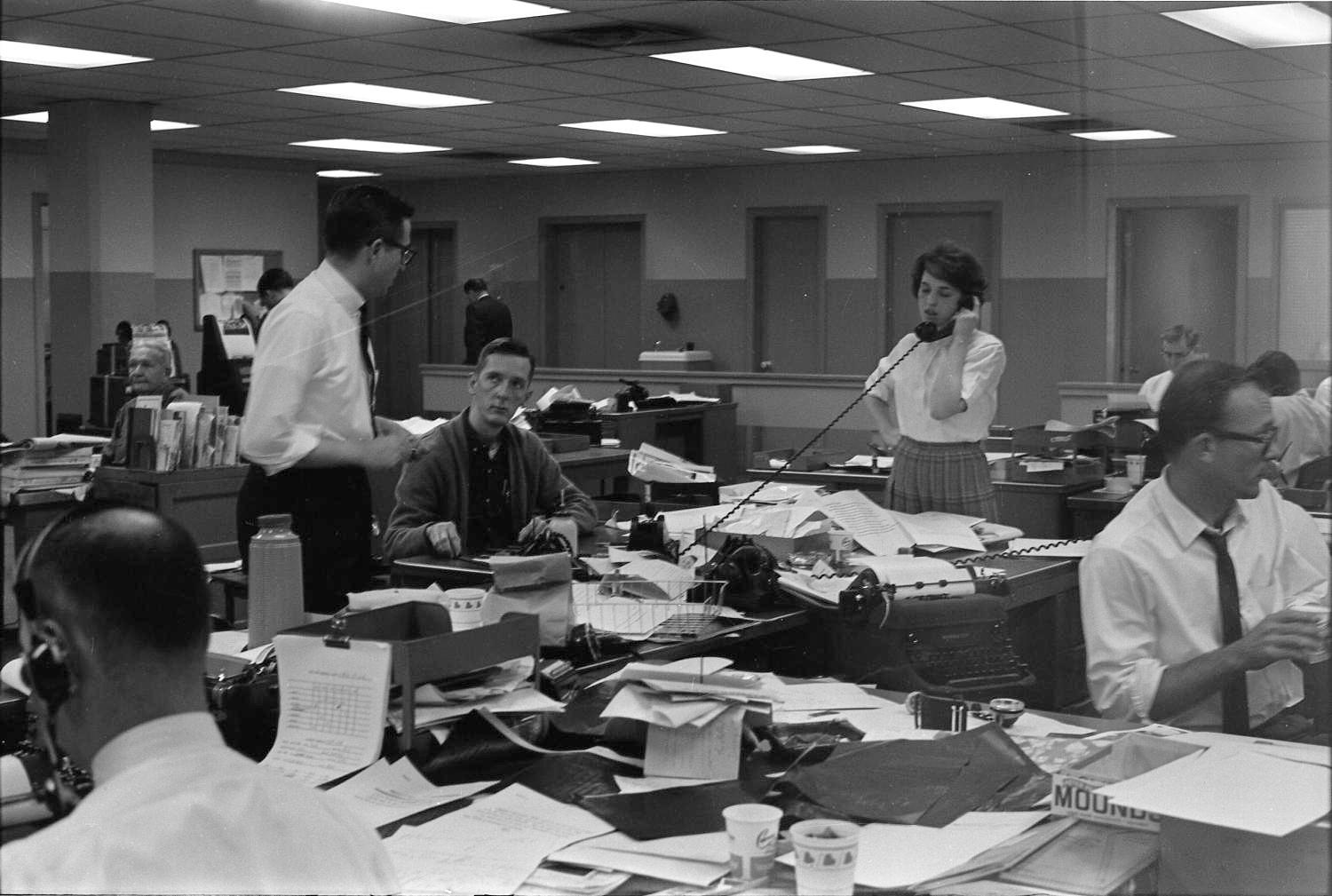
So don’t ask me what Mike Rokyo was like, because I don’t know. I had five years to walk to the other half (the Chicago Daily News half) of the fourth floor at 401 North Wabash and introduce myself to the legendary columnist, but never did. I met Irv Kupcinet, the Sun-Times gossip columnist for six decades and almost as famous in Chicago as Royko, only because Kup asked me to his private office once to quiz me about some labor skate he wanted to write about. I barely knew the legendary film critic Roger Ebert; we arrived within weeks of each other from state universities but occupied different acres of the big city room. No, I didn’t know Ann Landers (Eppie Lederer), although I could have launched a paper airplane from my desk to hers. And at the Dallas Times Herald I never offered my hand in fellowship to Blackie Sherrod, a sportswriter and columnist of such stature in the Lone Star State that people still avert their eyes in reverence at the mention of his name.

But I’m not done. I lunched sometimes at Billy Goat’s, a beer and hamburger joint beneath Wabash frequented by generations of Chicago newspaper reporters. The buns were toasted and the thin beef paddies dripped grease onto the bread—the perfect sandwich when spread with a bit of mustard and ketchup. But I never hung out at night at Riccardo’s, a restaurant and bar a block from the Sun-Times that was the staff’s unofficial watering hole. During periods of his life you’d find Ebert there almost every evening.
What the heck was wrong with me? Nothing, really. Give me a break, please, for being shy. What was I going to say to Blackie? “Mr. Sherrod, I don’t care much for sports so I seldom read your column, but I want to introduce myself anyway.” I terribly admired Rokyo, and read his columns every day at the University of Kansas for two years before settling down 100 feet from Royko’s desk. But such was Rokyo’s reputation that I was afraid how he’d react to my gushing and fawning. “Fuck off, kid,” or “Don’t you have something better to do?” I was not good at small talk and hadn’t the first notion of what to say to Eppie Lederer.

Today I wouldn’t make those mistakes. I’d do my damnedest to ingratiate myself with Roger Ebert, who had an ego the size of our building but was worth the effort anyway because he was brilliant. I’d wander to Sherrod’s desk in Dallas and say, “Blackie, I’m Fred, the new dumb kid. Let’s talk in Latin.” I’d tell Mike Royko he was my inspiration but that if I tried writing news stories with the sass that he wrote columns I’d be fired. To Eppie (Ann), whose lovelorn advice I read every day, I’d say, “Will you marry me?” I’d ask Kup if he’d take me to lunch with him at the Pump Room.
As for not hanging out at Riccardo’s, I was married, and Maggie had every right to expect me home after I got off at 6, and not at 10, smashed.
So I never knew Mike Royko. But there were so many interesting people I worked with who I did know that I never felt like an office wallflower. Paul Galloway said it best. What he liked most about the Sun-Times city room when he first saw it in 1969, he told Michael Miner, was its “hyperactive, study-hall kind of atmosphere, full of problem children. And I said to myself, ‘This is where I want to be.’ ” Me, too.
